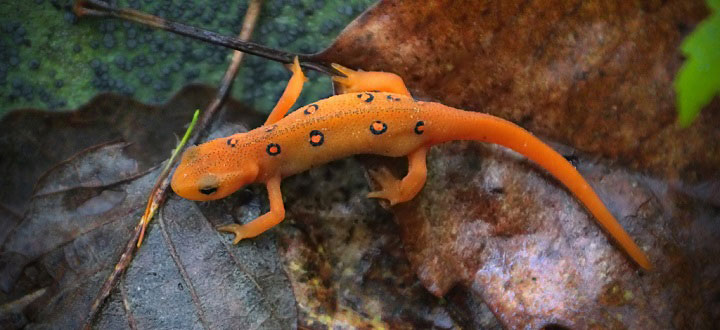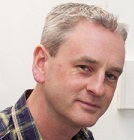Newts inspire a new approach to osteoarthritis treatment
Posted on 24 August 2015
The amazing ability of newts to regenerate their own body tissue has inspired research by our biologists into possible new treatments for osteoarthritis.

This is exciting, novel work in the field of regenerative medicine”
Newts can regenerate their own body tissue when they lose a limb – a process known as dedifferentiation. Now scientists at York, led by Dr Paul Genever in the Department of Biology’s Arthritis Research UK Tissue Engineering Centre, have adapted this natural process to rejuvenate cells from people with osteoarthritis to repair worn or damaged cartilage.
There is currently no treatment to halt the progression of osteoarthritis, the world’s most common joint disease which causes pain and stiffness in the joints. Severe cases often require total joint replacement.
Stem cells
Studies by the York team focused on patients’ bone marrow stem cells, a valuable source of potential treatment because they can generate joint tissue the body will not reject when it is re-implanted. The problem is that as people grow older, the number of stem cells decreases and the remaining cells are less able to grow and repair tissue.
When newts get injured, their cells cluster and return to an embryonic-like stem cell form. In this state, cells multiply and generate the specialised cells needed for the formation of new tissue.
At York, researchers managed to recreate this process in the laboratories by growing human cells in 3D clusters.
Generating new tissue
Dr Genever said: “Using this technique, we have shown that human cells can also be dedifferentiated to an early embryonic stage. They are then capable of generating new tissues.
“The next stage is to find out more about the dedifferentiation process so that we can find the right treatment to encourage tissue repair in the damaged joint. That is our aim.”
The research, funded by a £190,158 award from the medical research charity Arthritis Research UK, is published in Nature Scientific Reports
Dr Stephen Simpson, Director of Research and Planning at Arthritis Research UK said it was exciting, novel work in the field of regenerative medicine. “Although in its early experimental stages, it could take us a step closer to our ultimate goal of a more effective and much-needed new treatment for the very many people who live with this painful joint condition.”
The text of this article is licensed under a Creative Commons Licence. You're free to republish it, as long as you link back to this page and credit us.

Dr Paul Genever
Dr Genever's research is focused on identifying cellular and molecular pathways that regulate differentiated tissue function, primarily in skeletal systems (bone, cartilage, marrow)
Discover the details
Arthritis Research UK is the charity dedicated to stopping the devastating impact that arthritis has on people’s lives
Additional researchers
Publications
Human cell dedifferentiation in mesenchymal condensates through controlled autophagy is published in Nature Scientific Reports.
Explore more research

A research project needed to spot trees on historic ordnance survey maps, so colleagues in computer science found a solution.

We’re using gaming technology to ensure prospective teachers are fully prepared for their careers.

A low cost, high-accuracy device, could play a large part in the NHS's 'virtual wards'.
